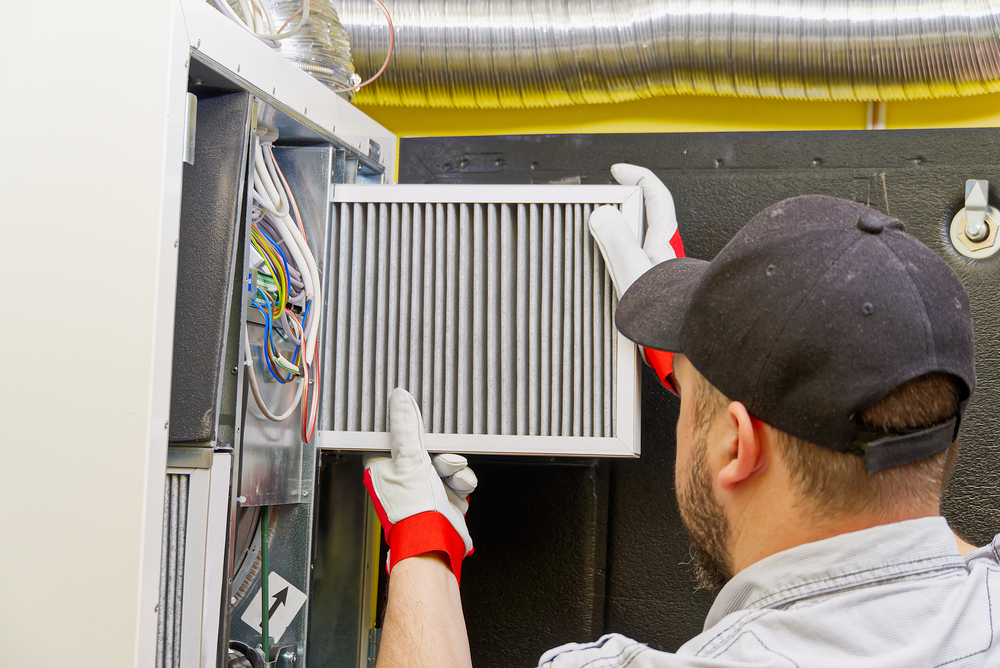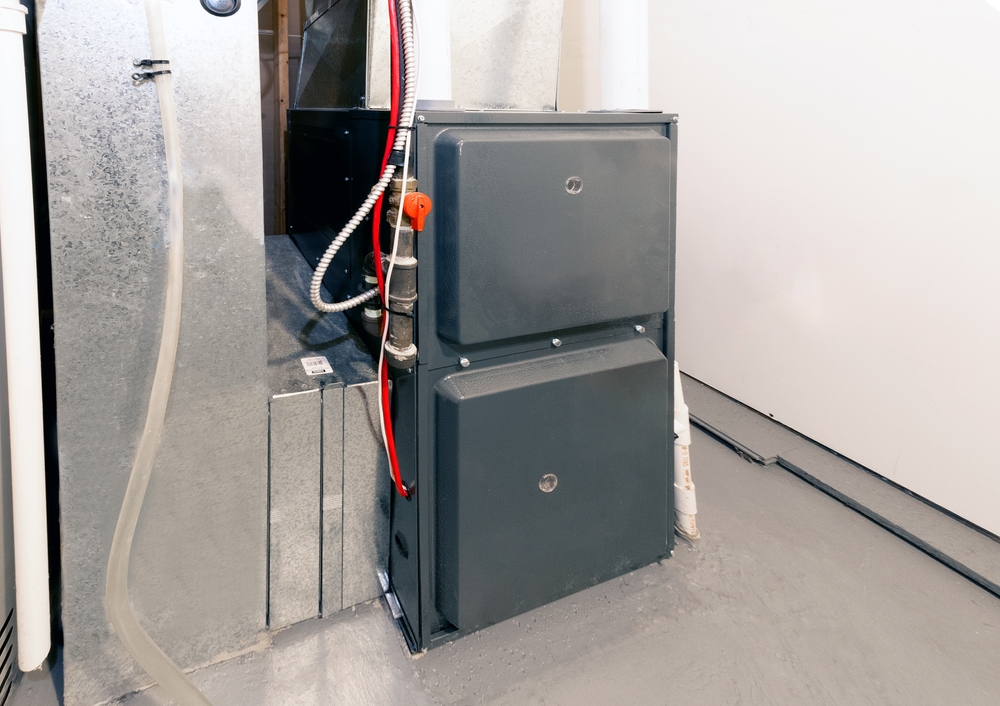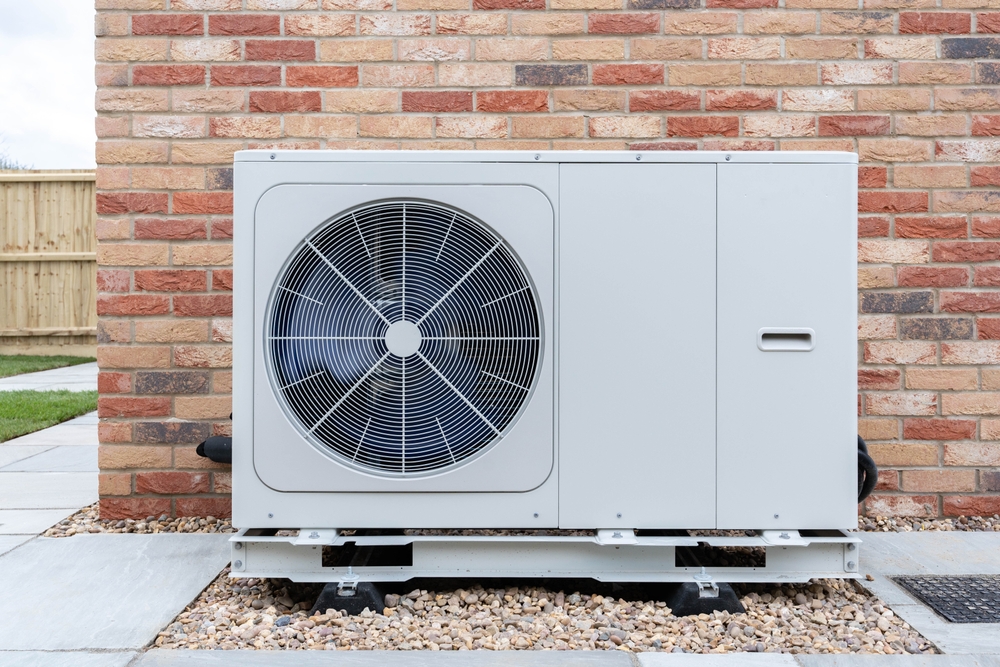Choosing the right HVAC system for your home is about more than saving money: it’s about comfort. There have never been more systems to choose from whether it be ductless mini-splits, geothermal heat pumps, or beyond. The heat pump vs. furnace debate has caused countless homeowners to question whether their HVAC system is right for them.
Traditional gas furnaces can quickly heat your home, and they are more efficient than electric furnaces. However, heat pumps are up to 300% more efficient than furnaces because they transfer heat from outside. The only downside to this is that heat pumps don’t typically work well when the temperature falls below 32 degrees Fahrenheit.
The upfront installation cost of heat pumps is much higher than the cost of installing a furnace in many cases. That said, they both cool and heat your home, and you don’t have to worry about fires or carbon monoxide. Follow along as we settle the heat pump vs. furnace debate and explore their differences.
Furnace Vs. Heat Pump
Both furnaces and heat pumps provide comfort to millions of homeowners each year. While they both serve to keep your home comfortable, they are different in many ways.
These differences come down to everything from installation and performance to how quickly they can heat your home.

Furnace
Furnaces have been the gold standard in home heating for years. Gas furnaces are the most common, but electric furnaces are quite popular as well. A recent study showed 61% of U.S. households use natural gas, which largely comes down to furnaces.
Even still, electric furnaces are popular among people who want to avoid gas furnace maintenance. Unfortunately, electric units lead to high energy bills, but both options are dependable.
Hybrid, propane, and condensing furnaces are much less common, and they aren’t as efficient as gas furnaces. Let’s look at the pros and cons of furnaces and see how they compare to heat pumps.

Pros
- Gas and propane furnaces can quickly heat your home.
- Furnaces work well in any climate.
- Gas furnaces can lower your bills compared to electric furnaces.
- A well-maintained furnace can last over 20 years.
Cons
- Electric furnaces can increase your energy bills.
- Gas furnaces are high-maintenance.
- Electric furnaces take a while to heat your home.
- Poorly installed gas furnaces can create dangerous emissions.
Heat Pump
Heat pumps are unique in that they provide both heating and cooling. This makes them an incredible HVAC system that you can use all year whether it’s summer or winter. Both ground-source and air-source heat pumps are effective, but ground-source units are more consistent.
That’s because they pull heat and cool air from the ground. The ground retains temperature throughout the day, so you have a constant source you can rely on. Let’s explore the pros and cons of heat pumps and see how they compare to furnaces.

Pros
- Heat pumps evenly heat and cool your home.
- They heat and cool your home.
- Heat pumps are cheap to run.
- There is no risk of fire or carbon monoxide exposure.
- They are quiet as they only typically run at 40-60 decibels.
Cons
- High installation cost.
- Heat pumps don’t work as well when it’s freezing outside.
- The outdoor unit can freeze during winter, and you must defrost it.
- They don’t last as long as furnaces.
How Are Furnaces and Heat Pumps Different?
Heat pumps and furnaces have many differences in price and durability to their appearance and performance. Let’s look at the key differences between furnaces and heat pumps.
Price
Heat pumps have a higher up-front cost than furnaces, and that discourages some people from choosing them. For example, heat pumps typically cost at least $3,500 to install whereas furnace installation starts at $2,000 on the low end. That said, it can cost up to $20,000 to install both furnaces and heat pumps in large, new homes depending on the system and layout.
It’s cheaper to run a heat pump than a furnace, however, because heat pumps don’t use fuel sources. That’s why heat pumps are often three times more efficient than furnaces.
Performance
The difference in performance between heat pumps largely depends on the climate and time of the year. Heat pumps use the outside air to warm your house, so the performance can suffer in the winter.
For example, your heat pump may struggle to warm your home if the outdoor temperature falls below 32 degrees Fahrenheit. That’s not a problem with furnaces, and you can expect a consistent performance regardless of weather.
Maintenance
Heat pumps are low-maintenance compared to gas furnaces which are prone to repairs. That said, electric furnaces don’t require as much attention as gas furnaces. It’s important to thoroughly clean the burner, heat exchanger, and blower assembly each year to protect your furnace.
You must also replace the air filter every 30-90 days. Conversely, you can often go up to a year before you replace a heat pump filter. Instead, you must clean the filter each month to keep dust and debris out of the indoor unit.

Lifespan
While it depends on many factors, furnaces often last longer than heat pumps. You can expect a gas furnace to last 20 years or longer if you take great care of it. Heat pumps often last 15 years, but they can go bad sooner. Electric heat pumps can last up to 30 years in some cases, and they offer the most durability.
So, Are Heat Pumps Better Than Furnaces?
Heat pumps are more efficient than furnaces, but furnaces offer more consistency. That’s because both gas and electric furnaces can run well despite cold outdoor temperatures. Heat pumps are prone to slow starts when the temperature falls below the freezing point.
However, you get more variety with heat pumps because they can also cool your house, unlike furnaces. Heat pumps perform the best in warm climates, but they work quite well throughout spring, summer, and fall nearly anywhere. That said, furnaces typically last over 20 years whereas heat pumps only last 15 years.

